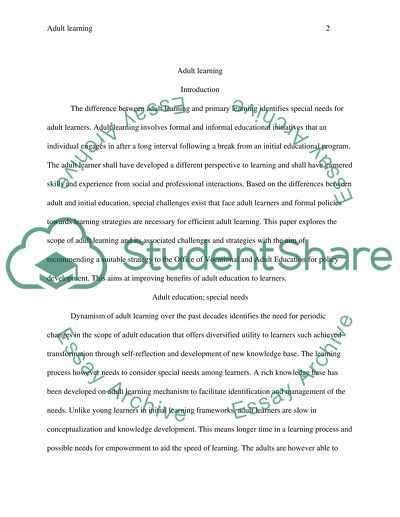Cite this document
(“Adult education Assignment Example | Topics and Well Written Essays - 1000 words”, n.d.)
Retrieved from https://studentshare.org/education/1487999-adult-education
Retrieved from https://studentshare.org/education/1487999-adult-education
(Adult Education Assignment Example | Topics and Well Written Essays - 1000 Words)
https://studentshare.org/education/1487999-adult-education.
https://studentshare.org/education/1487999-adult-education.
“Adult Education Assignment Example | Topics and Well Written Essays - 1000 Words”, n.d. https://studentshare.org/education/1487999-adult-education.


